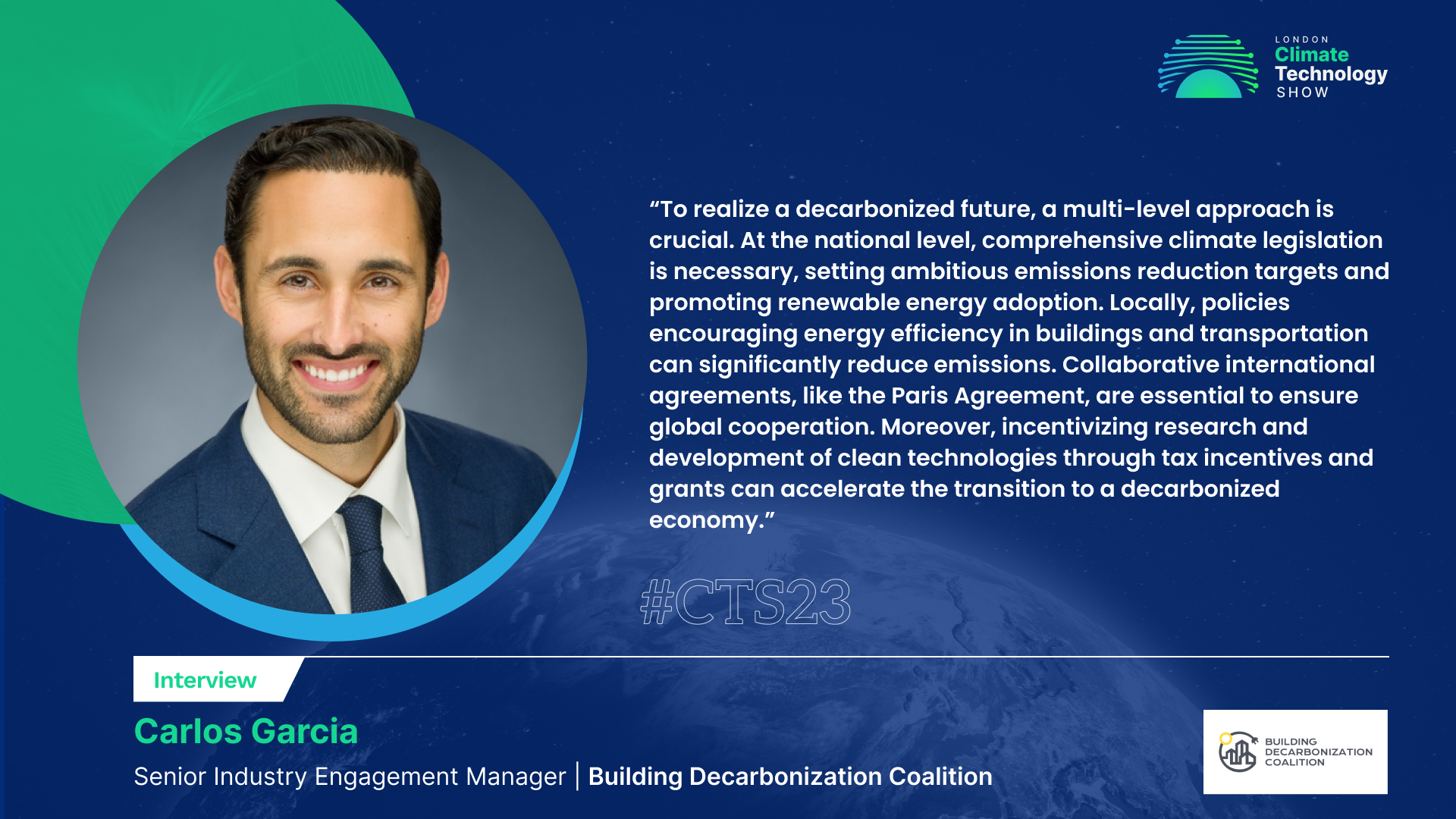In the heart of Africa's poorest slums, Carlos Garcia found his life's mission after directly witnessing the hardships endured by the impoverished residents in these lands. A profound sense of responsibility washed over him to tackle these challenges head-on. Delving into its root cause which is Climate Change, he emerged as the expert of the field. In a recent interview, Carlos shared deep insights with Muhammad Younis about decarbonising our planet as one of the methods to reverse climate change.
#CTS: Your story of becoming a climate expert is very interesting and inspiring, if you may please share it with our readers? Would you like to see more and more people like you?
Carlos Garcia: My journey as a climate expert was profoundly shaped by my experiences in the poorest slums of Africa. While working with impoverished communities in Kampala, Uganda and Nairobi, Kenya, during the summer between high school and college, I witnessed the daily challenges these communities faced - from hunger and child malnutrition to lack of clean water and education opportunities. This experience ignited a deep sense of purpose within me. Returning to the U.S., I embarked on a quest to address climate change, which I recognized as one of humanity's most complex challenges. My aspiration is to see more individuals driven by a similar purpose, contributing their expertise to create meaningful change for a more just and sustainable world.
#CTS: As a Climate Policy Expert, tell us how important are policies in tackling the Climate Crisis? What kind of policies would you recommend to be curated on different levels so that the dream of a total decarbonised future materializes soon?
Carlos Garcia: Policies play a critical role in addressing the Climate Crisis as they provide the framework for coordinated action on a global scale. To realize a decarbonized future, a multi-level approach is crucial. At the national level, comprehensive climate legislation is necessary, setting ambitious emissions reduction targets and promoting renewable energy adoption. Locally, policies encouraging energy efficiency in buildings and transportation can significantly reduce emissions. Collaborative international agreements, like the Paris Agreement, are essential to ensure global cooperation. Moreover, incentivizing research and development of clean technologies through tax incentives and grants can accelerate the transition to a decarbonized economy.
#CTS: In order to motivate a common man to consider environmentally friendly alternatives, help us see the detrimental consequences of using fossil fuels in buildings and homes, suggested as one among the major contributors to Climate pollution.
Carlos Garcia: The use of fossil fuels in buildings and homes directly affects the quality of the air we breathe and the stability of our ecosystems. When we rely on fossil fuels like coal, oil, and natural gas for energy in our living spaces, we contribute to air pollution that can lead to smog and respiratory problems. This pollution has tangible effects on our health, potentially worsening conditions like asthma and allergies, especially in densely populated areas.
Furthermore, burning fossil fuels releases particulate matter and harmful chemicals into the air, which can settle on surfaces, pollute water bodies, and harm vegetation. This impacts not only human health but also the well-being of wildlife and the delicate balance of ecosystems. These consequences become particularly concerning in urban environments where concentrated emissions from buildings and homes can exacerbate air quality issues and impact local biodiversity.
By choosing environmentally friendly alternatives such as solar panels, energy-efficient appliances, and sustainable heating and cooling systems, we can mitigate these negative effects. These alternatives reduce pollution and decrease our reliance on finite resources, promoting healthier air quality, a more resilient environment, and a brighter future for ourselves and generations to come.
#CTS: What is the role of the Building Decarbonization Coalition in minimizing the impact of Climate Change? If you may please share some of the important projects that you have undertaken so far, and how they contribute to the well-being of our planet?
Carlos Garcia: The Building Decarbonization Coalition plays a pivotal role in combating Climate Change by advocating for the decarbonization of buildings, a significant contributor to greenhouse gas emissions. By leveraging scientific expertise, collaborative partnerships, and advocacy, we drive transformative planning and policymaking. One of our projects focused on promoting energy efficient building codes, resulting in reduced energy consumption and emissions across various communities. Additionally, our efforts to raise awareness about the benefits of adopting renewable energy systems and implementing sustainable building practices have contributed to the improved health and well-being of both people and the planet.
#CTS: How would you evaluate the impact of events like the London Climate Technology Show in mainstreaming a total decarbonized understanding?
Carlos Garcia: Events like the London Climate Technology Show play a crucial role in mainstreaming a total decarbonized understanding. They bring together experts, innovators, policymakers, and the public to showcase cutting-edge technologies and solutions for a sustainable future. Such events not only raise awareness but also foster collaboration and knowledge-sharing. By showcasing real-world applications of decarbonized technologies, these events inspire individuals, businesses, and governments to take meaningful actions toward a low-carbon future. They contribute to shifting mindsets and accelerating the adoption of sustainable practices on a larger scale.

